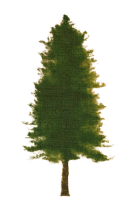
Thomas Heyward, Jr.
South Carolina
Thomas Heyward Jr. was born on July 28, 1746 at the family home, Old House, in present-day Jasper County. He represented the fifth generation of the Heyward family in the South Carolina province. In 1670, Daniel Heyward was among the early settlers of the Palmetto State. Thomas’ father, Colonel Daniel Heyward, became very successful and wealthy growing rice, which was the most profitable crop of the area. Colonel Heyward’s property covered a large portion of the Low Country, stretching from the Combahee River south toward Beaufort and Savannah, about 50 miles in length.
Young Heyward was educated in a classical manner learning grammar, logic, and rhetoric. He studied law in the office of Mr. Parsons, a lawyer of great distinction in South Carolina. Colonel Heyward was an ardent loyalist and ensured his son’s education was most excellent and sent him to Middle Temple in London to complete his legal training. While in England, Thomas Heyward learned of the perspective from which the English viewed their counterparts in the colonies. They were seen as inferior and were not granted the same rights and privileges as the English born in the mother country.
Upon returning to South Carolina, Thomas Heyward began practicing law and speaking out against the unconstitutional actions of Parliament against the colonists. He was not shy about vocalizing his opposition. He was recognized a leader for patriotism and was selected to serve in the first General Assembly in 1776. He was appointed to the Committee of Safety where he and the other members readied South Carolina to defend itself against British military aggression.
At 29 years of age, Thomas Heyward was elected to the seat recently vacated by John Rutledge at the Second Continental Congress. When the time arrived to vote on Richard Henry Lee’s resolution for independence, he gladly supported the measure and signed the Declaration of Independence on August 2nd. This displeased his father. The animus did not last long, however, and they reconciled and enjoyed a good father-son bond until his father’s death the next year.
While serving as a captain of artillery in the South Carolina militia, Mr. Heyward was wounded during the battle where General Moultrie defeated the British at Beaufort. The gunshot scarred him for the remainder of his life. The next year, 1780, he and two other colleagues from the Continental Congress were captured by the British during the siege of Charleston. Mr. Heyward, Edward Rutledge, and Arthur Middleton were taken to St. Augustine, Florida and held there for 11 months. While others were release during a prisoner exchange, Mr. Heyward was transported to Philadelphia, but he almost died when he fell overboard. He survived by holding onto the ship’s rudder until he was rescued.
During his imprisonment in Florida, Mr. Heyward altered the British national anthem, God Save the King, by writing another set of lyrics. His parody was entitled, “God Save the Thirteen States.” It became a popular tune throughout the colonies.
He returned to Charleston and continued his public service as an associate judge for the state. He also participated in the state constitutional convention. In 1799, he retired and withdrew to his beloved White Hall to tend to the affairs of the plantation. Thomas Heyward Jr. died on April 17, 1809. He was the last of the South Carolina signers to pass on.
Thomas Heyward Jr. lived to be 63 years of age.


